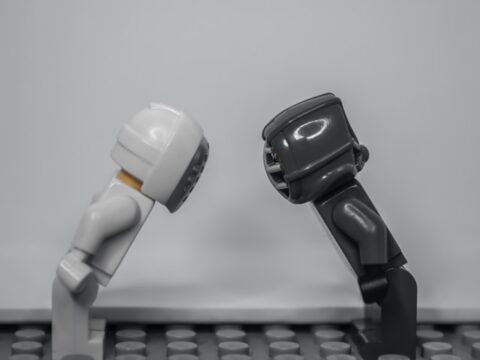Last Updated on 10/30/2021 by てんしょく飯
Even though the internationalization of Japanese people is progressing, it seems that only a small part of them still come into contact with foreigners.
Under such circumstances, foreigners who are confused by greetings with Japanese people never cease to exist.
bow

First of all, at the time of the first meeting, when a foreigner tries to shake hands, the Japanese bow and do not even meet. The Japanese bowed while shaking hands, thinking that the Japanese would reach out and shake hands when the foreigners were confused by the bow.
Now, bowing in Japan is considered to be a typical Japanese behavior. It is an action that expresses respect for the other person and expresses various emotions such as “gratitude” and “apology”. The Japanese also bow as greetings and ask each other. The deeper the bow, the more respectful it is, so different forms of bowing are used in different scenarios.
Therefore, when you extend your hand to shake hands, the Japanese bowing is very respectful to the other person, so let’s shake hands again after the Japanese raise their faces.
OTSUKARESAMA (Cheers for good work)

In society such as within Japanese companies
Whether it’s morning or evening, you’ll hear “Otsukaresama (good work)”. I have only worked for foreign-affiliated companies, but even if I was told “Otsukaresama(Thank you for your hard work)” from the morning, I haven’t done anything yet and I’m not tired, so I don’t know how to reply and I remember being confused. I am.
A literal translation of “Otsukaresama(good work)” into English would be “You did good job!”, “Well done!”, “It was great!”, Etc. This is “Otsukaresama(good work)” in the sense that it conveys the feelings of hard work to the person who has done some work. It’s obviously unnatural to say this to someone you meet in the morning, noon, or evening.
However, this “Otsukaresama(good work)” is just a “greeting”. In fact, this “greeting” is very complicated. This is because it includes the meanings of “good morning,” “hello,” and “good evening,” as well as the meaning of casual conversations such as “hello!”, “How are you?”, And “how are you?” This is the cause of confusion for us, who have only worked for foreigners or foreign companies like me.
If you try it in English, it will look like “Good morning.” “Hello.” “Good evening.” “Hi!” “How are you?” “How’s it going?”. If you don’t realize that “Otsukaresama(good work)” has many meanings, English conversation will be unnatural. However, if you think about it the other way around, if you understand the diversity of the meanings of “Otsukaresama(good work)”, you can convey the “feelings” of “Otsukaresama(good work)” that we just say in English. Will be.


コメント